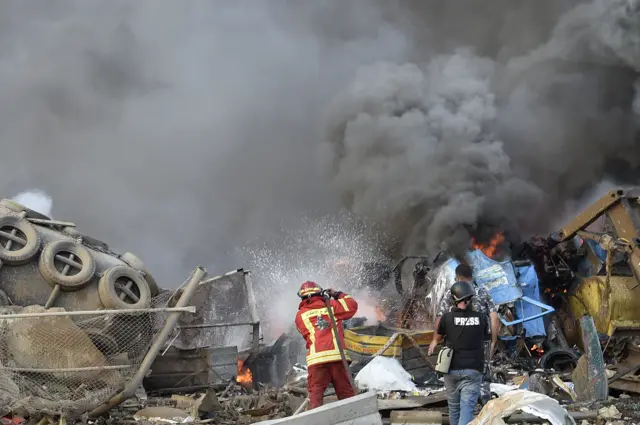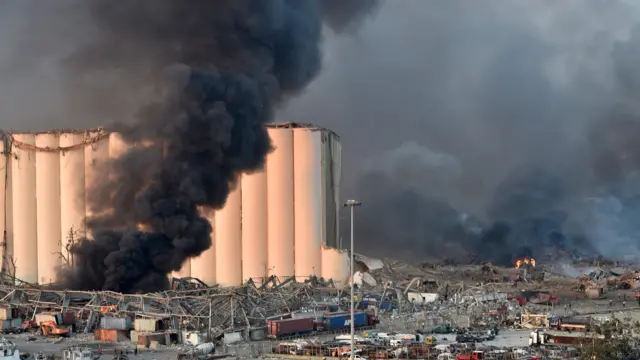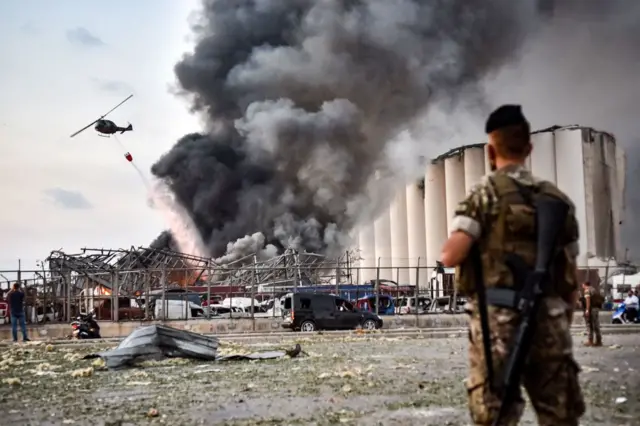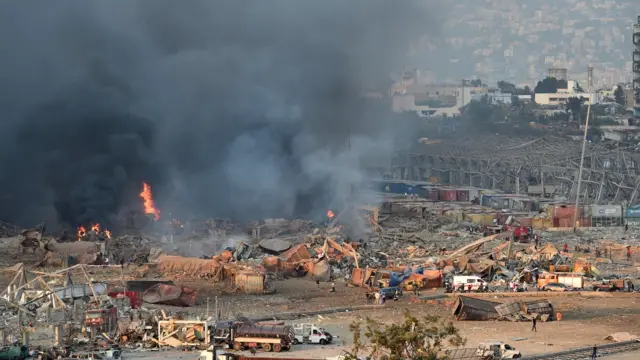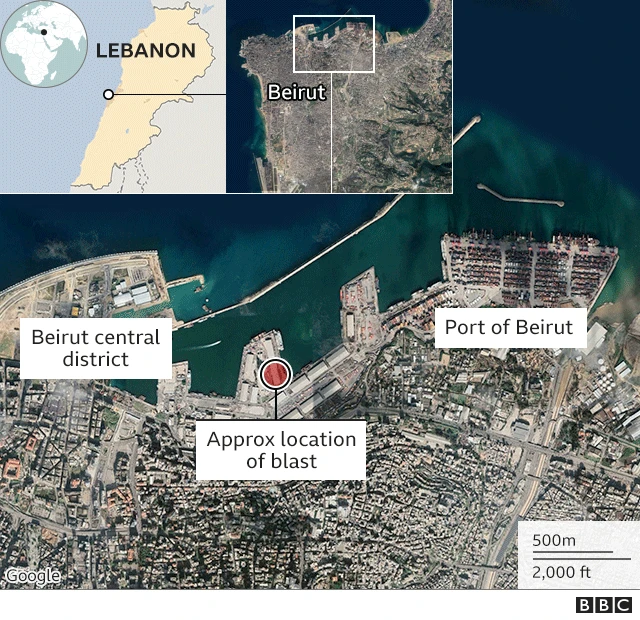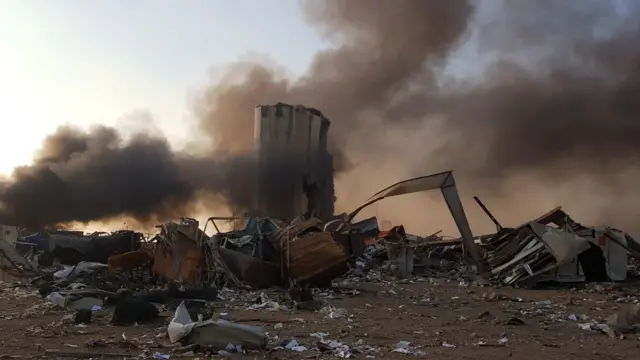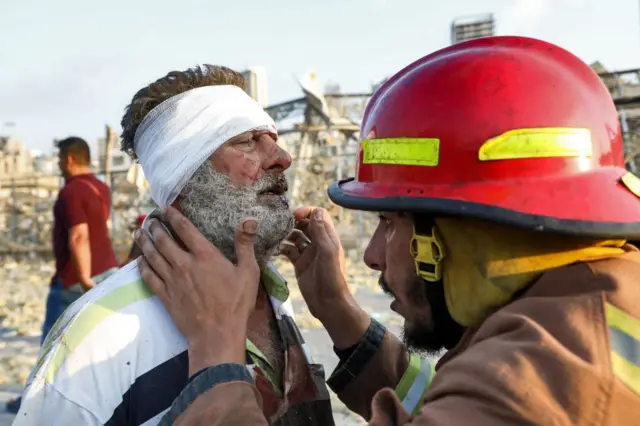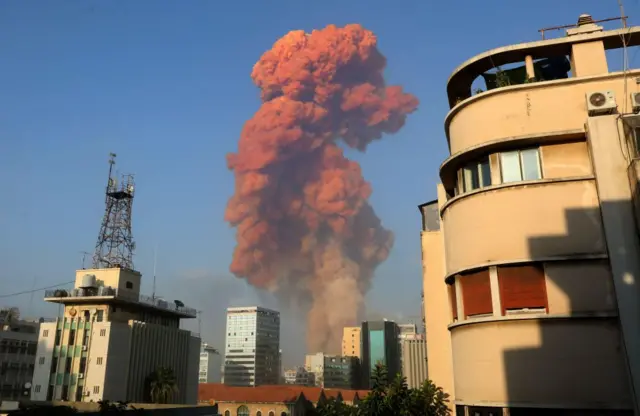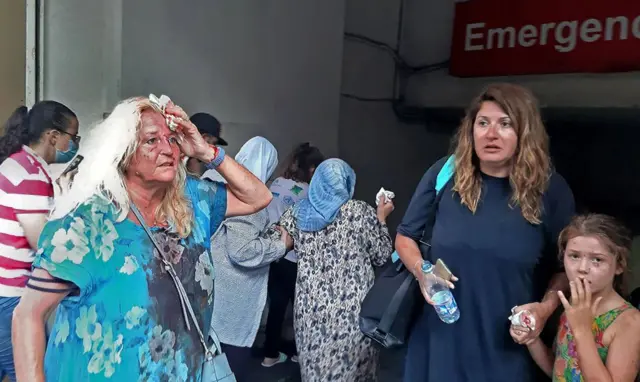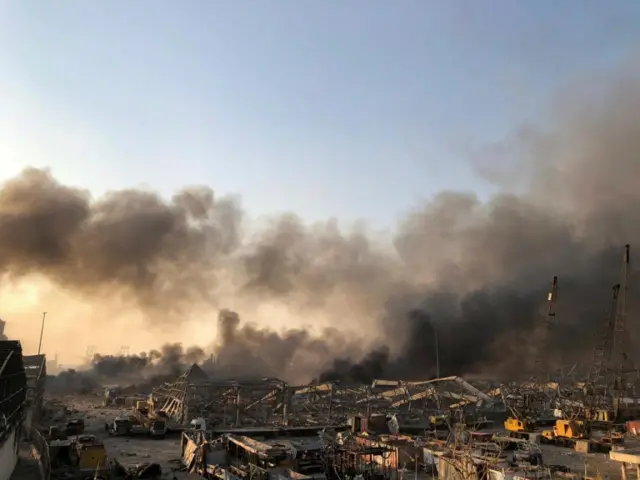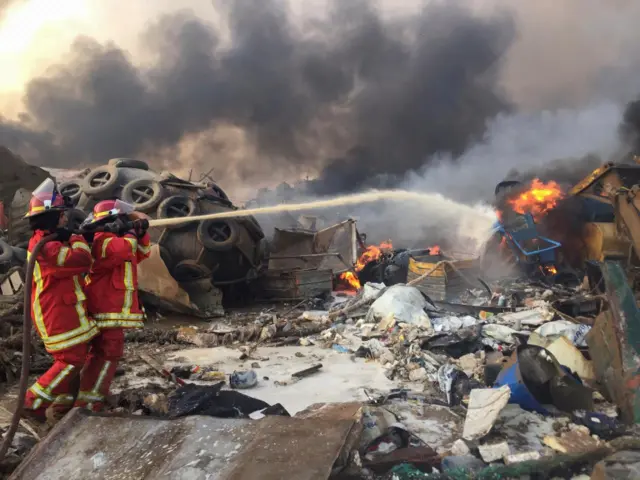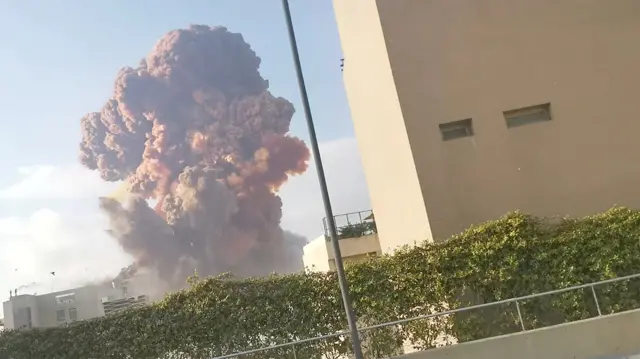Stored materials could have caused blast, officials saypublished at 19:26 BST 4 August 2020
Lebanon's Interior Minister Mohammed Fehmi said the huge explosions may have been caused by explosive materials that were stored at Beirut port.
General Security Chief Abbas Ibrahim said: "It appears that there is a warehouse containing material that was confiscated years ago, and it appears that it was highly explosive material".
Speaking to reporters, he said a probe would begin, but added "we cannot preempt investigations".
